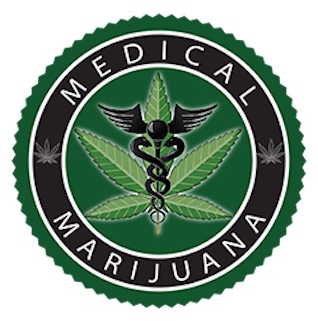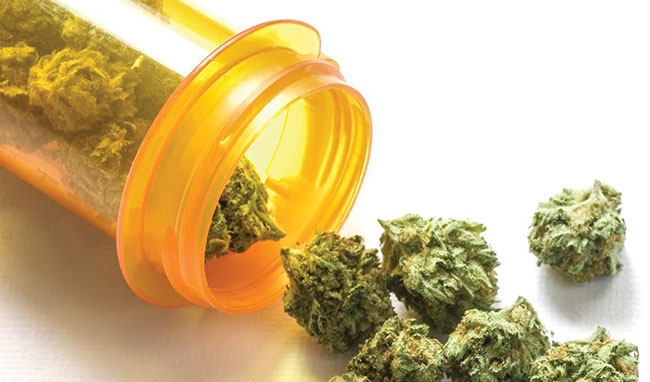Medical Marijuana – How I Became A Believer
Unless you live under a rock in the middle of the desert, by now you’ve heard the term Medical Marijuana. Whether you approve or disapprove on the issue of marijuana, there is no denying the fact that Medical Marijuana use is widespread and appears to be growing every day.
I got my first look at the benefits of marijuana when a family member in her late 70s developed cancer. By the time she received her diagnosis, the cancer had already spread to her lymph nodes. So, the only recourse was immediate surgery, followed by chemotherapy and radiation treatments. The cancer itself was excruciatingly painful. The treatments made her sick to the point of being unable to eat or sleep and without those things she lost all quality of life. Her misery was devastating to witness.
Eventually someone suggested she try marijuana. Out of desperation, she agreed to it.
Suddenly her appetite returned and she was able to rest. And seeing her smile and laugh again was nothing short of a miracle. The transformation left no room for doubt. Marijuana provided relief and that gave her hope and the will to go on.
Since then, I’ve opened up to the idea of marijuana as a form of medicine. Sure, there are many instances in which its usage is debatable, but when used responsibly, I believe marijuana can make a huge difference. I’m also convinced that very soon, medical researchers will gain the support they need to pave the way for deregulation. When that happens, many lives will be saved.
In the meantime, there is much to learn.
What is Medical Marijuana?
Medical Marijuana is a term for marijuana, or the chemicals derived from it, used solely for medical purposes.
What is Medical Marijuana used for?
According to Marcel Bonn-Miller, PhD, a substance abuse specialist at the University of Pennsylvania Perelman School of Medicine, “The greatest amount of evidence for the therapeutic effects of cannabis relate to its ability to reduce chronic pain, nausea and vomiting due to chemotherapy, and spasticity [tight or stiff muscles] “
Medical Marijuana is used to treat a number of different conditions, including:
- Alzheimer’s disease
- Appetite loss
- Cancer
- Crohn’s disease
- Eating disorders such as anorexia
- Epilepsy
- Glaucoma
- Mental health conditions like Schizophrenia and Post Traumatic Stress Disorder (PTSD)
- Multiple Sclerosis
- Muscle spasms
- Nausea
- Pain
- Wasting Syndrome (Cachexia)
Cannabinoids: The Key Ingredient
The marijuana plant contains more than 100 different chemicals called Cannabinoids. Each one has a different effect on the body.
Cannabinoids are similar to chemicals the body makes that are involved in appetite, memory, movement, and pain. Delta-9-tetrahydrocannabinol (THC) and Cannabidiol (CBD) are the main chemicals used in medicine. THC produces the “high” people get when they either smoke marijuana or ingest foods that contain it.
Research suggests that Cannabinoids might:
- Reduce anxiety
- Reduce inflammation and relieve pain
- Control nausea and vomiting caused by cancer chemotherapy
- Kill cancer cells and slow tumor growth
- Reduce anxiety
- Reduce inflammation and relieve pain
- Control nausea and vomiting caused by cancer chemotherapy
- Kill cancer cells and slow tumor growth
- Relax tight muscles in people with MS
- Stimulate appetite and improve weight gain in people with cancer and AIDS
Which states allow Medical Marijuana?
More and more states are legalizing marijuana to treat pain and illness. Medical Marijuana is legal in 33 states and the District of Columbia. The following states allow only restricted use: Alabama, Georgia, Iowa, Kentucky, Mississippi, Missouri, North Carolina, South Carolina, Virginia, Wisconsin and Wyoming.
How do you get Medical Marijuana?
In states where it is legal, you need a written recommendation from a licensed doctor. Many states allow for recreational marijuana use and require no documentation from a medical professional. Law specifics vary from state-to-state. To find out what the marijuana laws are in your state, view this interactive map.
Even in states where it is legal, not every doctor is willing to recommend Medical Marijuana for their patients. You must have a condition that qualifies for Medical Marijuana use, and each state has its own list of qualifying conditions. Your state may also require you to get a Medical Marijuana ID card. Once you have that card, you can buy Medical Marijuana from a store called a dispensary.
Has the FDA approved Medical Marijuana?
The FDA has approved two synthetic Cannabinoid medicines, Dronabinol (Marinol, Syndros) and Nabilone (Cesamet) to treat nausea and vomiting resulting from chemotherapy.
The FDA recently approved the Cannabidiol, Epidiolex, for treatment of seizures associated with two rare and severe forms of epilepsy, Lennox-Gastaut Syndrome and Dravet Syndrome. In studies, some people had a dramatic drop in seizures after taking this drug.
It’s exciting to think that someday soon we’ll be able to reduce or replace expensive medications (with all the side effects that go with them) with a more natural alternative. For those dealing with long-term or chronic conditions such as MS, Epilepsy and Cerebral Palsy, that would be a major life-changer.
Want to learn more?
There is a lot of research available from reputable medical organizations, as well as a vast number of patient testimonials.
Here are some links to get you started:
Marijuana as Medicine? The Science Beyond the Controversy
Could Medical Cannabis Break the Painkiller Epidemic?
Map of Marijuana Legality by State
DISCLAIMER–The views and opinions expressed here are based solely on personal experience, research and my interactions other professionals in the field of health and wellness. This article is not a diagnose, or medically based advise. Your experiences and sentiments may differ from my own. If you are suffering from any serious medical condition, you should consult your doctor or naturopath for a diagnosis.




